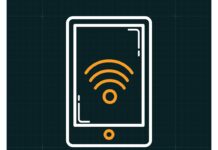- Focusing on property tokenization, a startup has created a business model that benefits investors, developers, and tenants
- The fintech aims to solve the housing access problem for 13 million people
In a world where owning a home is becoming increasingly challenging—even in countries with stable economies—Argatio’s proposal is striking and disruptive.
Argatio is an Argentine startup that is making waves in the real estate market with an innovative approach: through property tokenization, it aims to democratize access to housing using Blockchain technology.
Founded by a group of visionary young entrepreneurs, Argatio proposes a radical change in the traditional way of investing in and accessing real estate. Their disruptive model is based on three fundamental pillars:
Tokenization
Argatio acquires properties, divides them into low-cost digital tokens, and makes them available to investors worldwide. This democratization of access allows anyone, regardless of financial capacity, to participate in the real estate market.
Leasing
To comply with regulatory frameworks and offer greater security to its users, Argatio uses a leasing format in its operations. This way, investors not only acquire a token representing a fraction of the property but also obtain a rental contract that generates profitability.
Cross-cutting Benefits
The Argatio platform offers advantages for both investors and tenants. Investors enjoy an annual return in dollars on their tokens, while tenants who invest in the property get a reduction in net rent and the possibility of purchasing the home as they accumulate tokens.
An Integrated Solution to the Housing Problem
Argatio is not just a real estate investment platform. Its vision goes beyond that, seeking to provide a comprehensive solution to the housing access problem. Argatio tokens not only represent an investment in a specific property but can also be used as flexible savings in staking or even to purchase a home in any country where the company operates.
Tokenization: Local and Global
In Argentina, the company is focusing on Buenos Aires and Neuquén, the hometown of one of its founders. In Neuquén, the legal characteristics of the real estate market allow Argatio to offer a co-ownership model, while the MiCA law in Europe facilitates business traction.
Argatio has already established a presence in Spain, with properties in cities like Málaga, Valencia, Alicante, Palma de Mallorca, and Ibiza. Their ambitious expansion plan includes expanding to Brazil, Italy, and other countries, bringing their innovative proposal to a growing audience.
Beyond the purchase and tokenization of properties, Argatio also plans to venture into real estate management. In Neuquén, for example, they see a business opportunity in Vaca Muerta, where high demand for temporary accommodation opens doors to the rental of housing modules.
Argatio’s ultimate goal is ambitious: to solve the housing access problem for 13 million people worldwide. With its innovative model, cutting-edge technology, and talented team, Argatio positions itself as a disruptor in the real estate market, with the potential to transform how people access home ownership.
Property Tokenization: Basic Concepts
Blockchain technology is transforming various sectors, and the real estate market is no exception. Property tokenization emerges as a financial innovation that democratizes access to real estate investment, increases liquidity, and provides greater transparency and security.
What are Real Estate Tokens?
Real estate tokens are digital units that represent a fraction of ownership in a real estate asset. These tokens are created on a blockchain platform, ensuring their immutability and security. By acquiring real estate tokens, investors become co-owners of the underlying asset and can access its benefits, such as rental income and participation in important decisions.
How Does Property Tokenization Work?
The property tokenization process involves the following steps:
- Property Selection: A property owner or developer chooses a property to be tokenized. This can be a commercial property, residential property, or even land.
- Due Diligence and Valuation: An exhaustive evaluation of the property is conducted to determine its value and suitability for tokenization. This includes legal, financial, and technical aspects.
- Token Creation: Once the value is determined, digital tokens representing fractions of the property are issued. These tokens are created on a blockchain, ensuring their security and immutability.
- Sale to Investors: The tokens are put up for sale on an investment platform, where investors can acquire them. Each token represents a proportional part of the property and grants rights to the investors, such as rental income and participation in important decisions.
- Management and Dividends: The tokenization platform manages the property. Rental income, for example, is distributed to token holders based on their participation.
Benefits of Property Tokenization
Property tokenization offers various benefits for investors and real estate developers:
For Investors:
- Democratization of Access: Allows investment in properties with lower investment amounts, opening the market to more investors.
- Greater Liquidity: Facilitates the buying and selling of real estate tokens compared to physical properties.
- Transparency and Security: Blockchain technology ensures the transparency and security of transactions and token ownership.
- Diversification of Investments: Allows diversification of investment portfolios with real estate assets.
- Access to Passive Income: Investors can receive passive income from property rentals.
For Real Estate Developers:
- Access to Capital: Facilitates the financing of real estate projects through the sale of tokens to investors.
- Greater Reach: Enables reaching a broader audience of investors through digital platforms.
- Cost Reduction: Can reduce costs associated with the traditional sale of properties.
- Attract New Investors: Allows attracting investors interested in new technologies and digital assets.
Property tokenization is in its early stages of development but has the potential to revolutionize the real estate market. By democratizing access, increasing liquidity, and providing greater transparency, this financial innovation can open new opportunities for investors and real estate developers.








